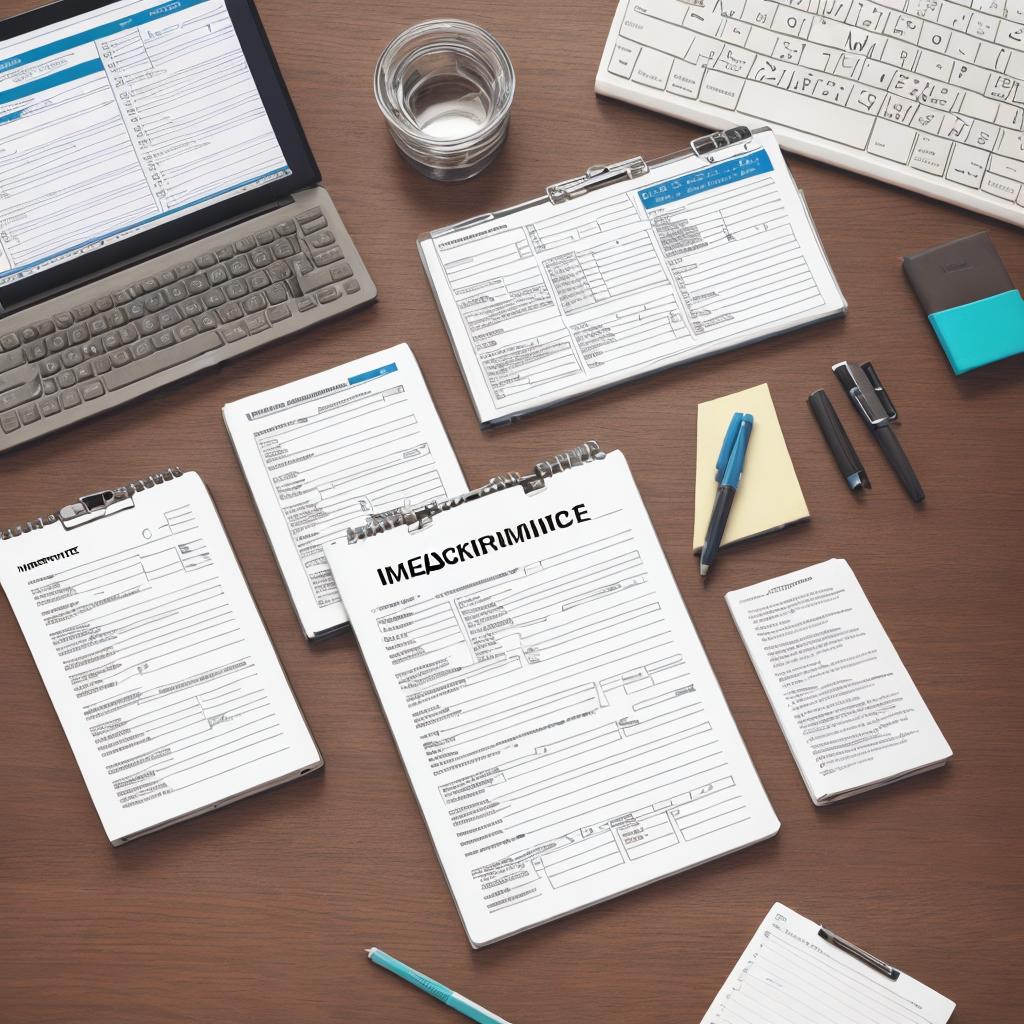Essential Documents Checklist for Medicaid Application

Are you applying for Medicaid? Get ready because here’s an essential documents checklist that you shouldn’t miss.
Did you know that nearly 75% of Medicaid applications get denied due to incomplete or missing paperwork? Don’t let that happen to you!
This article will guide you through the necessary personal identification documents, financial records, proof of citizenship, medical information, and special circumstances documentation you’ll need to submit.
Stay organized and increase your chances of a successful Medicaid application!
Key Takeaways
- Personal identification documents such as a valid government-issued photo identification and proof of residency are necessary for a Medicaid application.
- Financial and income records, including documentation of income and financial resources, bank statements, pay stubs or income statements from all sources, and copies of previous year’s tax returns, are required for a Medicaid application.
- Proof of citizenship or immigration status can be provided through a U.S. Passport, Certificate of Naturalization, or Permanent Resident Card.
- Medical and health information, such as recent medical records, a list of prescription medications, detailed medical history, and immunization records, should be included in a Medicaid application.
Personal Identification Documents
You should always carry your personal identification documents when applying for Medicaid. These documents are crucial in verifying your identity and eligibility for the program. The specific identification documents you need may vary depending on your state’s requirements, but there are some common documents that you should have on hand.
Firstly, you’ll need a valid government-issued photo identification, such as a driver’s license or passport. This document serves as proof of your identity and helps establish that you’re who you claim to be.
In addition to a photo ID, you’ll also need to provide proof of your residency. This can be done by presenting documents such as utility bills, lease agreements, or bank statements that show your current address. The purpose of this requirement is to ensure that you’re a resident of the state in which you’re applying for Medicaid.
Furthermore, it’s essential to provide documentation of your income and financial resources. This may include recent pay stubs, tax returns, or bank statements. These documents help determine if you meet the income and asset requirements for Medicaid eligibility.
Financial and Income Records
When gathering the necessary documents for your Medicaid application, it’s crucial to include your financial and income records. These records provide proof of your financial situation and help determine your eligibility for Medicaid benefits.
Here are four essential financial and income records you should include:
- Bank statements: Gather copies of your recent bank statements to provide evidence of your income and assets. This includes checking, savings, and any other accounts you may have.
- Pay stubs or income statements: Include your most recent pay stubs or income statements from all sources of income, such as employment, social security, retirement benefits, or any other government assistance programs.
- Tax returns: Submit copies of your previous year’s tax returns, including all schedules and attachments. This allows Medicaid to verify your income and determine your eligibility based on your annual earnings.
- Proof of expenses: Provide documentation of your monthly expenses, such as rent or mortgage payments, utility bills, medical expenses, and any other recurring costs. This helps Medicaid evaluate your financial need and calculate the amount of assistance you may qualify for.
Proof of Citizenship or Immigration Status
To prove your citizenship or immigration status for your Medicaid application, include documentation that verifies your legal residency. This is an essential requirement to determine your eligibility for Medicaid benefits. The documentation you provide must clearly state your citizenship or immigration status and be valid and up-to-date. Here is a table that outlines the acceptable documents for proving your citizenship or immigration status:
| Document Type | Description | Additional Notes |
|---|---|---|
| U.S. Passport | Official identification issued by the U.S. Department of State | Must be current and not expired |
| Certificate of Naturalization | Document issued to individuals who have become U.S. citizens | Must be an original or certified copy |
| Permanent Resident Card (Green Card) | Proof of lawful permanent residency in the United States | Must be valid and not expired |
Make sure to gather the necessary documentation and include it with your Medicaid application. This will help expedite the review process and ensure that your application is processed accurately. Once you have provided the required proof of citizenship or immigration status, the next step is to gather your medical and health information, which will be discussed in the following section.
Providing accurate and complete documentation is crucial in proving your eligibility for Medicaid benefits.
Medical and Health Information
Gather your medical records and health information to include with your Medicaid application. This will help ensure that your application is complete and that you have all the necessary documentation to support your eligibility for Medicaid coverage. Here are four key items to include:
- Recent medical records: Collect records from your healthcare providers, including doctors, specialists, and hospitals. These records should cover any ongoing conditions, treatments, or surgeries you have had.
- Prescription medications: Make a list of all the medications you’re currently taking, including the dosage and frequency. This information will help Medicaid determine if you meet the criteria for prescription drug coverage.
- Medical history: Provide a detailed account of any past medical conditions or surgeries you have had. Include dates, diagnoses, and treatments received. This information will give Medicaid a comprehensive understanding of your health background.
- Immunization records: If applicable, gather records of your immunizations, including vaccines received and dates administered. This is especially important if you have children who are applying for Medicaid coverage.
Supporting Documentation for Special Circumstances
If you have any special circumstances that may affect your Medicaid application, it’s important to provide supporting documentation to ensure accurate evaluation of your eligibility. Special circumstances can include situations such as a disability, pregnancy, or being a victim of domestic violence.
For each special circumstance, there are specific documents that can help support your case. If you have a disability, you should provide medical records, including diagnoses, treatment plans, and any relevant test results. It’s also helpful to include a letter from your healthcare provider explaining how your disability affects your ability to work or perform daily activities.
For pregnant individuals, you’ll need to submit documentation that confirms your pregnancy, such as a doctor’s letter or ultrasound report. Additionally, you may need to provide proof of income changes due to your pregnancy, such as reduced work hours or lost wages.
If you’re a victim of domestic violence and have had to leave your home, you may need to submit a police report, restraining order, or documentation from a shelter or social service agency.
Frequently Asked Questions
What Is the Deadline for Submitting a Medicaid Application?
You need to know the deadline for submitting a Medicaid application. It’s important to submit it on time to avoid any delays or complications in the process. Make sure to double-check the deadline and submit all required documents.
Can I Apply for Medicaid if I Am Already Enrolled in Another Health Insurance Program?
Yes, you can apply for Medicaid even if you are already enrolled in another health insurance program. It is important to provide all necessary documents to ensure a smooth application process.
Are There Any Income Limits for Medicaid Eligibility?
Yes, there are income limits for Medicaid eligibility. These limits vary by state and household size. You will need to provide proof of your income when applying for Medicaid.
What Happens if I Am Missing Some of the Required Documents for the Application?
If you are missing some required documents for the Medicaid application, it may delay the process. It’s important to gather all necessary paperwork to ensure a smooth application. Contact Medicaid office for guidance.
Can I Apply for Medicaid on Behalf of a Family Member Who Is Unable to Do so Themselves?
Yes, you can apply for Medicaid on behalf of a family member who can’t apply themselves. It’s important to gather all necessary documents and complete the application accurately to increase the chances of approval.



